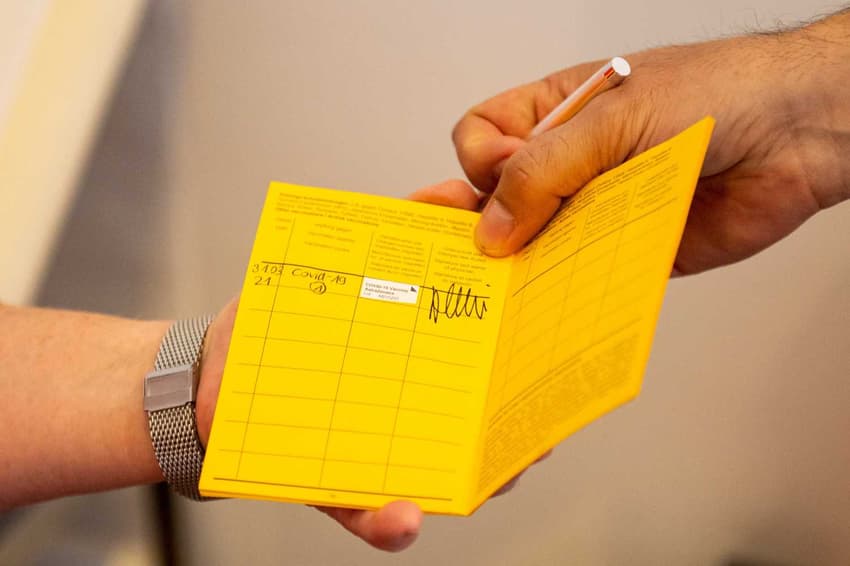How do you prove you have been vaccinated in Switzerland?

As at April 1st, just over 16 percent of the Swiss population has been vaccinated - with six percent receiving both doses. How do you prove you have been vaccinated?
In March, Switzerland announced it is working on a coronavirus immunity certificate which allows people to have certain privileges, from visiting restaurants to attending events and travelling.
However, as the certificate - known as yet as a ‘green pass’ - is not expected until the summer, how do you prove you have been vaccinated?
Here’s what you need to know.
What proof do you get once you are vaccinated in Switzerland?
Once you receive your doses, you will be given a signed vaccination certificate, which specifies, among other things, which vaccine was administered — the trade name, manufacturer, and batch number.
You will receive this document directly from the vaccination centre. More information is available here.
This information will be entered into the myCOVIDvac electronic vaccination record. But this step is voluntary and will be done only if you give your consent.
If you choose not to have a digital document, you can have the vaccination recorded in in paper format.
Why would you opt to have your information recorded electronically?
There are numerous advantages to having your vaccination record stores electronically.
Important information about your COVID-19 vaccination (name of vaccine received, dates of vaccinations, etc.) is stored securely in Switzerland.
You alone determine who may access your protected data.
Your e-vaccination record cannot be lost.
The e-vaccination record can be accessed online at any time and anywhere in the world if necessary.
You will be automatically notified at the time of the second vaccine dose - and also if a later booster is needed.
You can share the information with your doctors and pharmacists if you wish.
Should an international COVID-19 vaccination certificate be required at a later date, the stored information would serve as the basis for an international vaccination certificate.
Comments (3)
See Also
In March, Switzerland announced it is working on a coronavirus immunity certificate which allows people to have certain privileges, from visiting restaurants to attending events and travelling.
However, as the certificate - known as yet as a ‘green pass’ - is not expected until the summer, how do you prove you have been vaccinated?
Here’s what you need to know.
What proof do you get once you are vaccinated in Switzerland?
Once you receive your doses, you will be given a signed vaccination certificate, which specifies, among other things, which vaccine was administered — the trade name, manufacturer, and batch number.
You will receive this document directly from the vaccination centre. More information is available here.
This information will be entered into the myCOVIDvac electronic vaccination record. But this step is voluntary and will be done only if you give your consent.
If you choose not to have a digital document, you can have the vaccination recorded in in paper format.
Why would you opt to have your information recorded electronically?
There are numerous advantages to having your vaccination record stores electronically.
Important information about your COVID-19 vaccination (name of vaccine received, dates of vaccinations, etc.) is stored securely in Switzerland.
You alone determine who may access your protected data.
Your e-vaccination record cannot be lost.
The e-vaccination record can be accessed online at any time and anywhere in the world if necessary.
You will be automatically notified at the time of the second vaccine dose - and also if a later booster is needed.
You can share the information with your doctors and pharmacists if you wish.
Should an international COVID-19 vaccination certificate be required at a later date, the stored information would serve as the basis for an international vaccination certificate.
Join the conversation in our comments section below. Share your own views and experience and if you have a question or suggestion for our journalists then email us at [email protected].
Please keep comments civil, constructive and on topic – and make sure to read our terms of use before getting involved.
Please log in here to leave a comment.